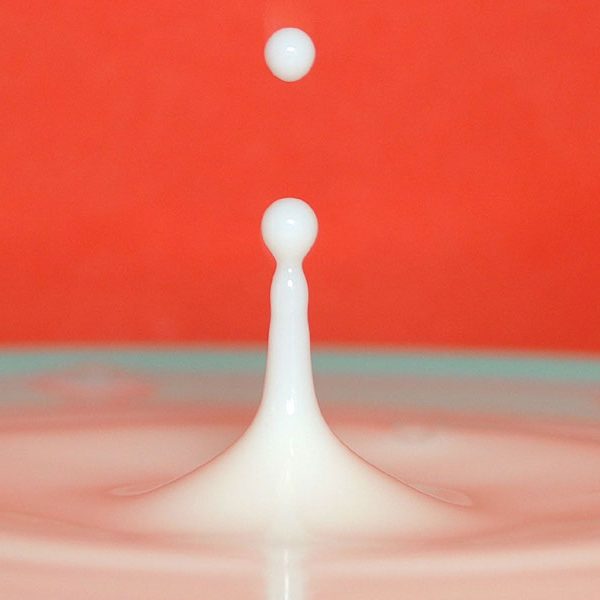Orange Juice 101
The following article by Georgia Orcutt originally appeared in the Boston Parents Paper:
It’s another morning and your household is buzzing as everyone gets up, gets dressed and grabs something to eat. Out comes the cereal, the toast, and, most likely, the orange juice. Chances are you consider it one of the most important items on the breakfast menu and you even nag your kids to finish it. But do you really know anything about what’s in that carton?
Alissa Hamilton, author of Squeezed : What You Don’t Know About Orange Juice (Yale University Press, 2009) suggests we all take a closer look. Her history of the drink reveals that the juice we buy isn’t as pure as manufacturers would like us to think. In fact, even the brands such as Tropicana that promise they are pure, natural and fresh have been heated and processed, stripped of their volatile flavor-producing chemicals, held in tanks for up to a year and then engineered to taste fresh.
Hamilton’s book digs deep to unearth industry secrets. While working on and visiting farms in Central America after law school, she realized that if she wanted to work in the field of food policy, she needed a better grasp of the links between food production and consumption. She decided to focus on understanding the effects that the processed food industry is having on the growing of major crops. Orange juice seemed the perfect case study because of both its popularity and the seamless connection between the raw agricultural commodity and the processed product: orange juice is processed oranges. Hamilton shared these thoughts with us.
What surprised you the most as you researched the history of orange juice?
The degree to which consumers have bought the myths that the industry has created about orange juice. I was not surprised by the extent to which products such as "not from concentrate" orange juice, which is marketed as "pure" and "natural," are processed, but by the reactions of dismay and betrayal that I continue to receive when I describe what has to be done to juice that has a shelf life of sixty plus days and is available year round.
You say in your book that consumers act like robots when it comes to orange juice. What do you mean?
Orange juice has become a national breakfast staple. Almost two thirds of American households buy orange juice. Yet if you ask people why they do the answers sound programmed: it's healthy, it's a good source of vitamin C, it's a good way to start the day. It's true that orange juice is a good source of vitamin C for soldiers without access to fresh fruits and vegetables. Frozen Concentrated Orange Juice, which entered the market in the late 1940s, was invented with World War II soldiers in mind. But for those of us with a choice, a whole orange contains more vitamin C than a glass of juice. That doesn't necessarily mean don't drink orange juice. But it's important to know what you're drinking and why.
What is there about orange juice that the average consumer doesn’t know?
Florida used to produce most of the nation's orange juice. However, over the last couple of decades Florida's orange groves have been turned into condominiums as the industry has moved to Brazil, where land and labor are cheaper and where there are fewer environmental regulations. The farther juice travels and the longer it sits in storage the more heavily it is processed. Now the big orange juice companies hire flavor and fragrance companies, the same ones that make popular perfumes and colognes, to engineer flavor packs to add back to their juice to make it taste fresh. Even most "not from concentrate," which is marketed as a fresher, higher quality product than "from concentrate," can sit in storage for a year and has flavor added to it. To call it natural is a real stretch.
If you could wave a magic wand how would you change the industry?
There needs to be more transparency surrounding the production of processed foods, orange juice included. We take it for granted that we should know what's in food but we know very little about how most food is produced. I don't expect juice companies to fill their labels with the details of how their product is processed. But it is reasonable to expect that the information they do provide be truthful and meaningful. "Nothing Added, Almost Nothing Removed" fails on the first count: for one, flavor providing essences and oils have both been added to and removed from the juice being advertised. "Squeezed from fresh oranges" fails on the latter count: one would hope the oranges were fresh when squeezed. Although meaningless, the statement could easily be misread as saying "fresh squeezed." If I could wave a magic wand such marketing tricks would no longer be the norm. Food labels would inform rather than deceive and mislead.
Many dietitians recommend eating a fresh orange and drinking a glass of water rather than buying orange juice. Are you in their camp?
I don't buy orange juice, but not as a result of writing the book. I never did. Personally, I'd rather eat an orange and drink a glass of water. In general, I prefer eating whole foods, literally: when I eat an orange I even eat the pith and save the peel for cooking. I'll leave the health advice to the dietitians. But I have nothing against orange juice, especially if it's fresh squeezed from Florida Valencias, the premium juice orange. It's Valencia season in Florida so now's the time. My dad squeezes a glass every morning. He loves it and at the same time he's supporting Florida growers. The routine seems to be working for him: he looks better than men half his age.
Georgia Orcutt is associate editor of the Boston Parents Paper.



Thank you for your insights into this industry. I really enjoyed your book.
I was fascinated to learn that the whole orange industry here in North America saw some of it’s origins from Southern China, near my ancestral homeland.
I’ve posted my thoughts on “Squeezed” on to my own blog.
Good luck, and I look forward to future dissertations authored by you.